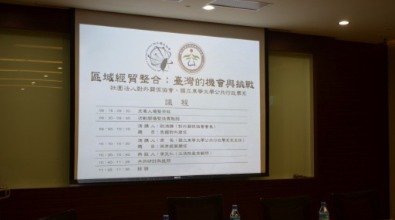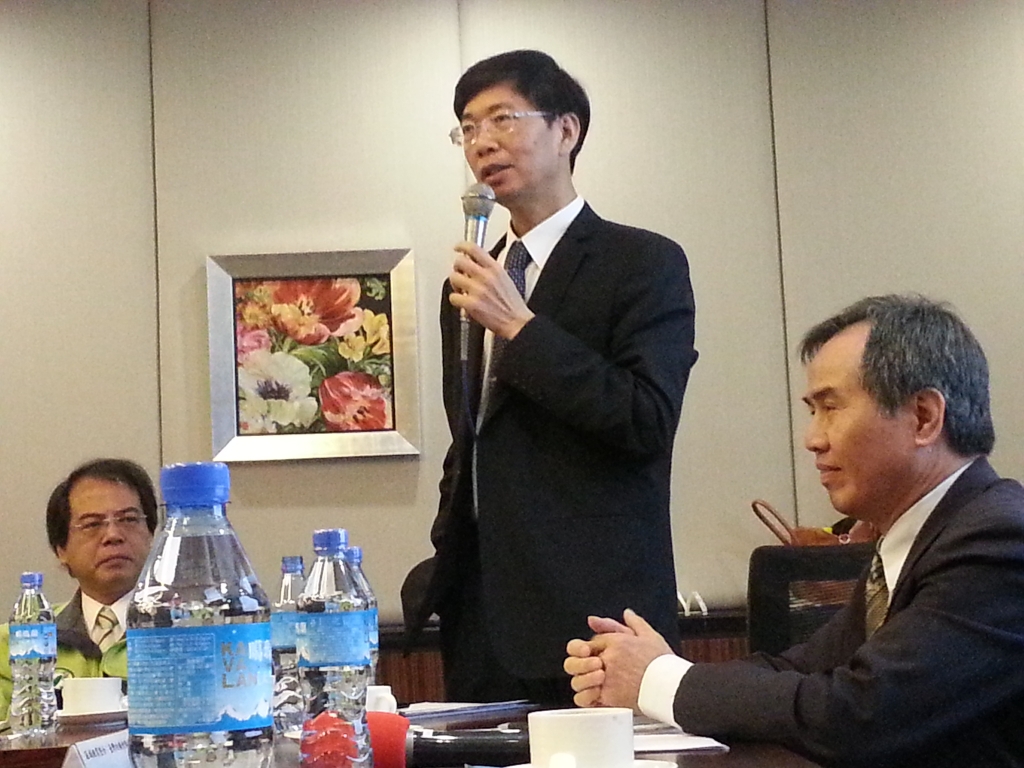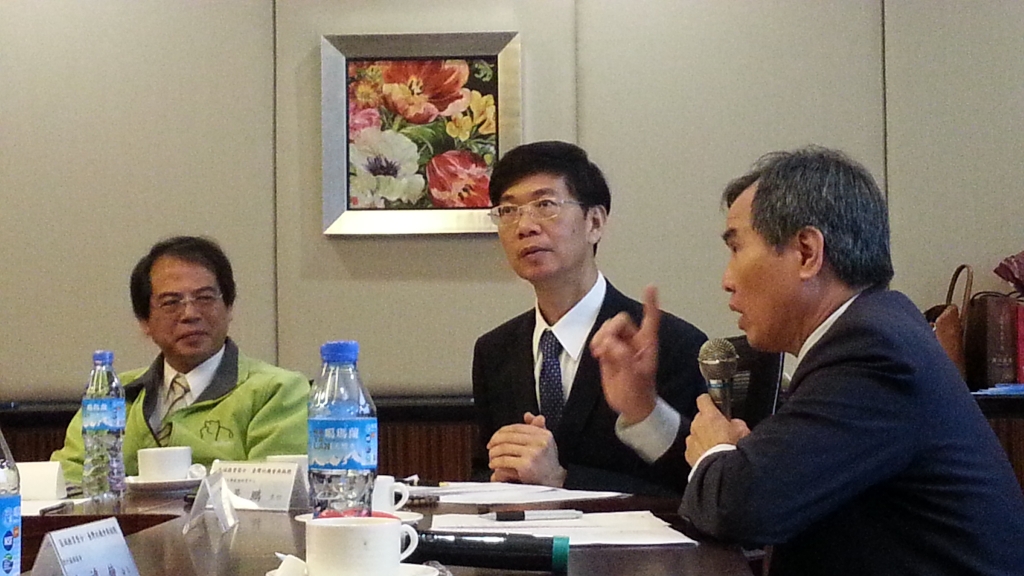Seminar on Regional Economic Integration: The Opportunities and Challenges for Taiwan

Title:
Regional Economic Integration: The opportunities and Challenges for Taiwan
Date: March 30, 2014
Venue: Arsma Hotel, Hualien
.
During the seminar, Chairman Ou emphasizes the importance of “Diplomatic Truce,” saying that though military battles across the Taiwan Strait have come to a ceasefire, diplomatic wars are still ongoing. “Diplomatic Truce” thus means that cross-strait diplomatic wars should come to an end, without dragging each other’s back and competing for diplomatic allies, yet never giving up on the country’s diplomatic efforts.
Strength has played an essential role in international relations. And in recent years, China’s political and economic strength have become particularly non-negligible, making it one of Taiwan’s biggest partners and competitors in international trade. Countries have already begun competitions in China’s market, and Taiwan should not place itself out of this trend due to ideological differences and thus dissipates the country’s resources. However, there’s a debate about whether the policy will influence Taiwan’s development in the country. And many also claim that enhancing Taiwan’s economic strength is of greatest importance.

Under the notion of international division of labor, both ends of the “Smiling Curve” commanding higher values are “Patent and Technology” and “Brand and Service,” while the middle part commanding lower values is “Fabrication.” Due to higher labor costs in Taiwan, many Taiwanese businessmen move factories to China, yet product and service development are still implemented in Taiwan. And so Taiwan need not worry too much about opening markets to China.
Professor Charng Kao from the Department of Public Administration, National Dong Hwa University, gives a speech on cross-strait economic relations as well as the heated topic of Cross-Strait Service Trade Agreement (CSSTA). Professor Kao states that Taiwan is a small economy, and that under the waves of globalization, Taiwan’s capital, technology and talents all face different challenges. And therefore, Taiwan should cope with these issues with an open mind instead of choosing to seal off the country. With free market policies, cross-strait trade volume climbs, and many factories are moved to China due to market incentives. Still, Taiwanese government hopes that cross-strait economic cooperation and development should proceed in an orderly manner without acting with undue haste.
According to Professor Kao, Free Trade Agreement (FTA) and Regional Trade Agreement (RTA) in a sense protect countries that sign the agreements while excluding others that do not. Thus, signing the agreements can passively avoid being marginalized and actively expand markets at the same time. Imports and exports are very important to Taiwan, but there are still limitations for Taiwan to sign free trade agreements. So if other countries have already reached mutual agreements, this would definitely impose great pressure on Taiwan.

The Economic Cooperation Framework Agreement (ECFA) that Taiwan is negotiating at the moment is an international regional trade agreement, with the aim of achieving trade liberalization under the WTO structure through different stages of negotiations. As for the issues regarding CSSTA, the content of the agreement put much emphasis on specific commitments and concrete rules of servers and suppliers, as well as national treatment and most-favoured-nation treatment.
Shang-Ren Lee, the supreme consultant from the Legislative Yuan, indicates that the past and development of Taiwan have their own characteristics. If Taiwan attempts to fit in the international society, it cannot place itself out of the economic system, and it thus has to cope with economic agreements prudently and carefully. Take the CSSTA for example, due to sensitive cross-strait political relations, Taiwanese government should therefore maintain certain transparency of the negotiation process so as to convince people.
Taiwan is an island economy where opportunities are brought when markets are being opened, and so fighting to join regional economic integration is no longer just an option. Also, signing the CSSTA with China would certainly bring Taiwan both competitions and pressure. Service industry, such as restaurants, barber shops and beauty salons, however, is different from trade in goods. Taiwanese people care much about the quality and technology of services, and restaurants have been opened a couple of years ago already. It is natural that people will express concerns, and so the government should maintain transparency as well as provide complementary measures to help businesses adapt the possible impacts. At the same time, businesses should not ask the government to close the gate up as well.



 256 bit SSL Encryption
256 bit SSL Encryption